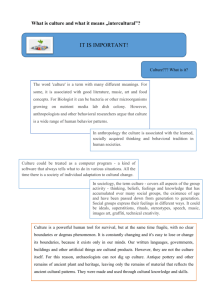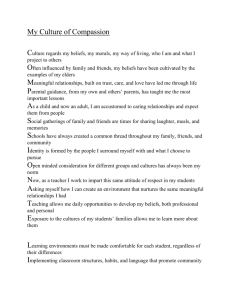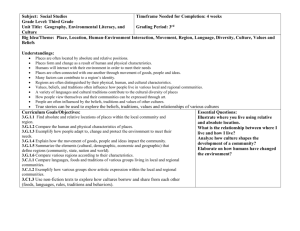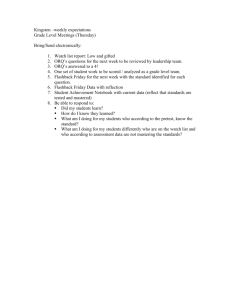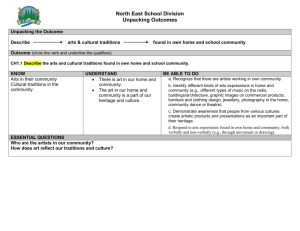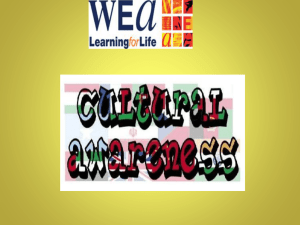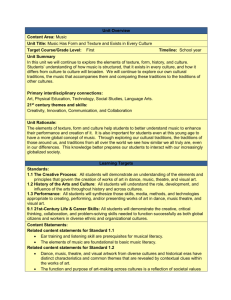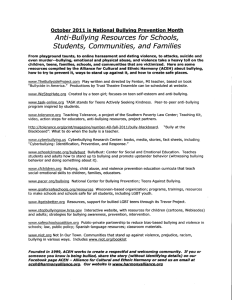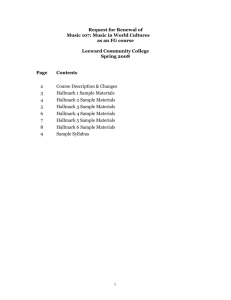SS Curriculum Map K cultures - Livingston County School District
advertisement
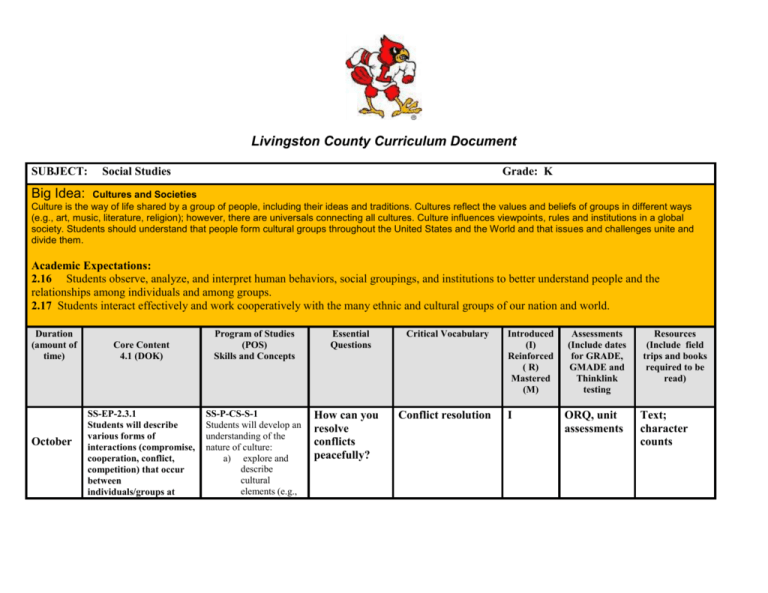
Livingston County Curriculum Document SUBJECT: Social Studies Grade: K Big Idea: Cultures and Societies Culture is the way of life shared by a group of people, including their ideas and traditions. Cultures reflect the values and beliefs of groups in different ways (e.g., art, music, literature, religion); however, there are universals connecting all cultures. Culture influences viewpoints, rules and institutions in a global society. Students should understand that people form cultural groups throughout the United States and the World and that issues and challenges unite and divide them. Academic Expectations: 2.16 Students observe, analyze, and interpret human behaviors, social groupings, and institutions to better understand people and the relationships among individuals and among groups. 2.17 Students interact effectively and work cooperatively with the many ethnic and cultural groups of our nation and world. Duration (amount of time) October Core Content 4.1 (DOK) Program of Studies (POS) Skills and Concepts SS-EP-2.3.1 Students will describe various forms of interactions (compromise, cooperation, conflict, competition) that occur between individuals/groups at SS-P-CS-S-1 Students will develop an understanding of the nature of culture: a) explore and describe cultural elements (e.g., Essential Questions How can you resolve conflicts peacefully? Critical Vocabulary Conflict resolution Introduced (I) Reinforced ( R) Mastered (M) I Assessments (Include dates for GRADE, GMADE and Thinklink testing ORQ, unit assessments Resources (Include field trips and books required to be read) Text; character counts home and at school. DOK 2 October Nov. SS-EP-2.2.1 Students will identify social institutions (government, economy, education, religion, family) and explain how they help in the community. SS-EP-2.1.1 Students will describe cultural elements (e.g., beliefs, traditions, languages, skills, literature, the arts). DOK 1 Nov. SS-EP-4.3.1 beliefs, traditions, languages, skills, literature, the arts) b) investigate diverse cultures using print and non-print sources (e.g., stories, books, interviews, observations) SS-P-CS-S-1 Students will develop an understanding of the nature of culture: b) explore and describe cultural elements (e.g., beliefs, traditions, languages, skills, literature, the arts) b) investigate diverse cultures using print and non-print sources (e.g., stories, books, interviews, observations) SS-P-CS-S-1 Students will develop an understanding of the nature of culture: a) explore and describe cultural elements (e.g., beliefs, traditions, languages, skills, literature, What role does your school and family play in the community? Community, compromise, conflict resolution I Unit assessment; ORQ Text Encyclomedia Why do we celebrate certain holidays? Culture, traditions, diverse I Unit Thanksgiving Assessments; play, books; ORQ Text Where and why did the Culture, traditions, diverse I ORQ Thanksgiving play, books, Students will describe patterns of human settlement in places and regions on the Earth’s surface. the arts) b) investigate diverse cultures using print and non-print sources (e.g., stories, books, interviews, observations) pilgrims settle in America? Text

